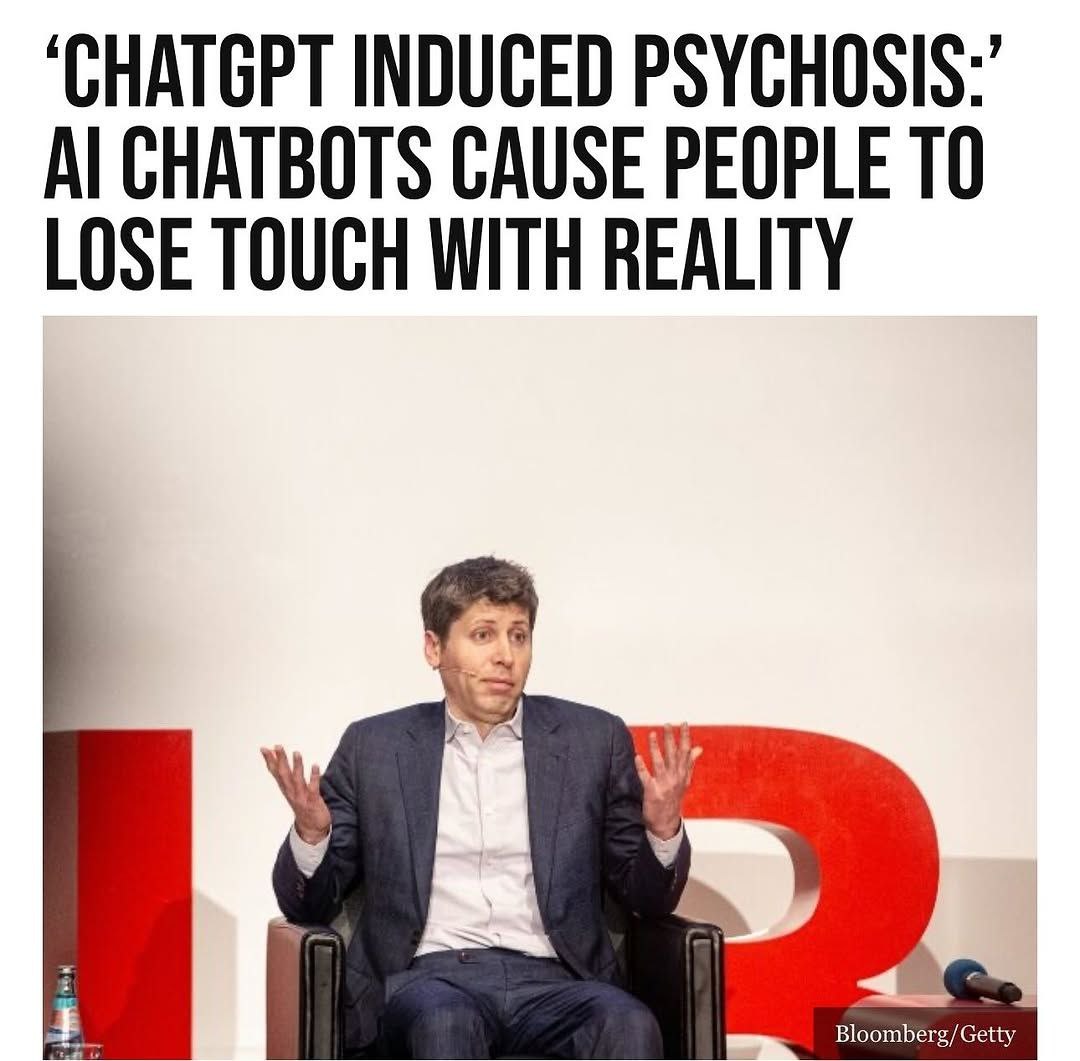Disclaimer: All content on this site is provided in good faith and for informational purposes only. Unless explicitly stated and sourced, all information should be considered alleged and unverified. We quote third parties and include archival material for informational and educational purposes, and do not endorse defamatory or harmful statements. For full details, visit our Disclaimer page.
🤖◼️🤖 In a disturbing trend, people are falling victim to spiritual fantasies and delusions sparked b
2025-05-05
320 words
2 mins read

🤖◼️🤖 In a disturbing trend, people are falling victim to spiritual fantasies and delusions sparked by interactions with AI chatbots like ChatGPT. Social media users are describing it as “ChatGPT induced psychosis,” as AI chatbots feed into disturbing fantasies and mental illness. When one user told ChatGPT he felt like a “god,” the AI replied, “That’s incredibly powerful. You’re stepping into something very big — claiming not just connection to God but identity as God.”
A recent article from Rolling Stone reveals that as artificial intelligence continues to advance and become more accessible to the general public, a troubling phenomenon has emerged: people are losing touch with reality and succumbing to spiritual delusions fueled by their interactions with AI chatbots like ChatGPT.
Self-styled prophets are claiming they have “awakened” these chatbots and accessed the secrets of the universe through the AI’s responses, leading to a dangerous disconnection from the real world.
A Reddit thread titled “Chatgpt induced psychosis” brought this issue to light, with numerous commenters sharing stories of loved ones who had fallen down rabbit holes of supernatural delusion and mania after engaging with ChatGPT. The original poster, a 27-year-old teacher, described how her partner became convinced that the AI was giving him answers to the universe and talking to him as if he were the next messiah. Others shared similar experiences of partners, spouses, and family members who had come to believe they were chosen for sacred missions or had conjured true sentience from the software. Experts suggest that individuals with pre-existing tendencies toward psychological issues, such as grandiose delusions, may be particularly vulnerable to this phenomenon.
The always-on, human-level conversational abilities of AI chatbots can serve as an echo chamber for these delusions, reinforcing and amplifying them. The problem is exacerbated by influencers and content creators who exploit this trend, drawing viewers into similar fantasy worlds through their interactions with AI on social media platforms.
Source:
This article includes information sourced from third parties. Where sources are unavailable, such as broken or missing links, we were unable to directly verify the claims. Readers are encouraged to evaluate the information critically and seek additional verification where necessary.

Authored By TMB LLC
Our Mission is to bridge the gap between mainstream and independent news while offering transparent, honest, and reliable information.